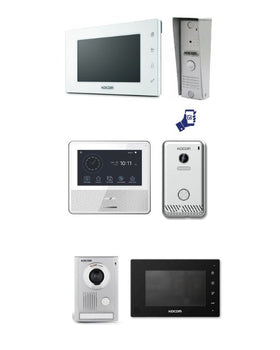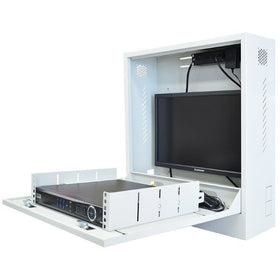
Wired or Wireless Reed Switches for Bosch Alarm Systems
Reed switches are commonly used in security alarm systems as sensors for detecting the opening or closing of doors and windows. When it comes to Bosch security alarm systems, both wired and wireless reed switches are available, each with its own advantages and considerations.

Wired Reed Switches
Advantages:
- Reliability: Wired reed switches offer a consistent and stable connection, with no risk of signal interference or battery failure. This makes them highly reliable for long-term use.
- No Batteries Required: Since wired reed switches are connected directly to the alarm system, there's no need to worry about battery replacement, reducing maintenance costs and effort.
- Cost-Effective: Wired reed switches are typically less expensive upfront compared to wireless options, making them a budget-friendly choice for installations where wiring is feasible.
Check out our Blog on the top 3 Wired Reed Switches
Considerations:
- Installation Complexity: Installing wired reed switches can be more complex and time-consuming, especially in existing buildings where running new wires may require additional work such as drilling or cutting into walls.
- Aesthetics: The need to run wires can affect the appearance of your property, although this can often be mitigated with careful planning or by using existing wiring channels.

Wireless Reed Switches
Advantages:
- Ease of Installation: Wireless reed switches are much easier to install, as they don’t require any wiring. This makes them an excellent choice for retrofit projects or properties where running wires is difficult or undesirable.
- Flexibility: These switches can be placed virtually anywhere, making them ideal for locations where wired solutions are impractical. They also allow for easy repositioning if needed.
- Aesthetic Appeal: With no visible wires, wireless reed switches provide a cleaner, more aesthetically pleasing installation, particularly in finished or decorated spaces.
Considerations:
- Battery Maintenance: Wireless reed switches rely on batteries, which will need to be monitored and replaced periodically to ensure the system remains operational.
- Potential Signal Interference: While modern wireless systems are generally reliable, there is a small risk of signal interference from other wireless devices, which could affect performance in environments with a lot of electronic noise.
- Higher Cost: Wireless reed switches tend to be more expensive than wired ones due to the technology involved.
Which to Choose?
- Wired Reed Switches are ideal for new builds or locations where running wires is not an issue. They provide a cost-effective, low-maintenance solution with excellent reliability.
- Wireless Reed Switches are the better option for retrofits, rental properties, or where aesthetics and ease of installation are top priorities. They offer greater flexibility and a cleaner look, though they require more maintenance due to battery dependency.
Both wired and wireless reed switches are compatible with Bosch security alarm systems, so the choice ultimately depends on your specific installation needs, budget, and preference for convenience versus maintenance.
Note:
Bosch Wireless Reed switches are not available for the Bosch 2000 Security Alarm system.


